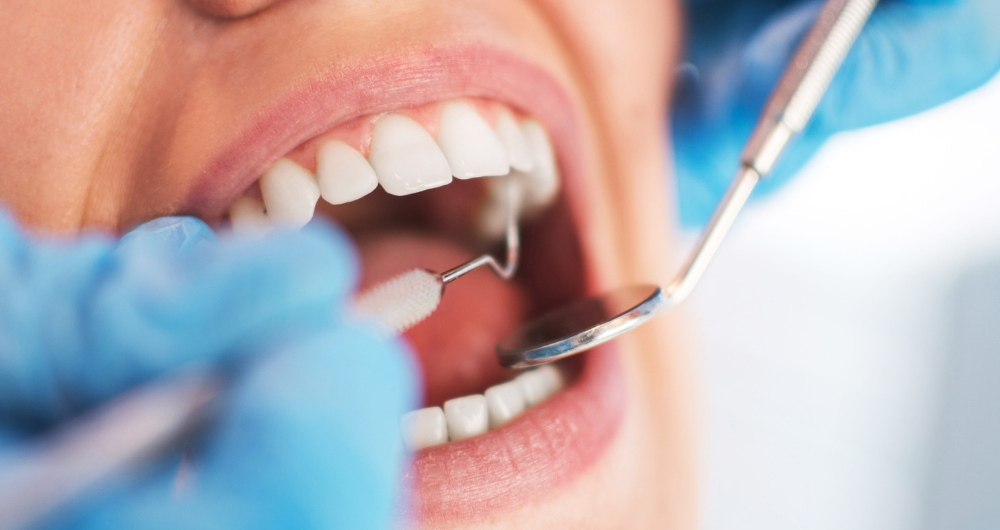But before driving off into the minty-fresh sunset, we should ask one more thing … “Do I have any signs of other health problems?”
You see, your mouth can hold clues to your overall health and your dentist and dental hygienist are trained to spot them. Here are a few of the more serious problems they should help you screen for.
Do I have diabetes? Am I managing my blood sugar?
People with type 1 and type 2 diabetes can have a harder time fighting bacterial infections. And that can lead to gum disease and mouth sores that are slow to heal.A trip to the dentist help you spot diabetes and it can help diabetics manage their blood sugar too. Research suggests that practicing good oral hygiene and having professional cleanings can actually help diabetics control their blood sugar levels.
Do I show signs of damage from acid reflux?
Gastroesophageal reflux disease (GERD), or acid reflux as it’s commonly called, is a condition where stomach acid flows upward out of the stomach and into the esophagus. The acid often causes heartburn, but not always.Sometimes the first indication of GERD is erosion of the enamel on the molars or on the backside of teeth. If your dentist sees this pattern in your mouth, he or she should recommend a follow-up appointment with your physician.
Do you see any signs of oral cancer?
Oral cancers (cancers of the lips, tongue, cheeks, floor of the mouth, hard and soft palate and throat) can be life-threatening if you don’t find and treat them early. Since oral cancer often appears as a persistent growth or sore, your dental exam can help with early detection.As part of this evaluation, your dentist checks the inside of your mouth for red or white patches or mouth sores and feels the tissues in your mouth to check for lumps or other abnormalities. He or she might also ask you if you use tobacco, drink a lot of alcohol or have a history of significant sun exposure.



